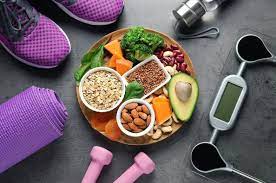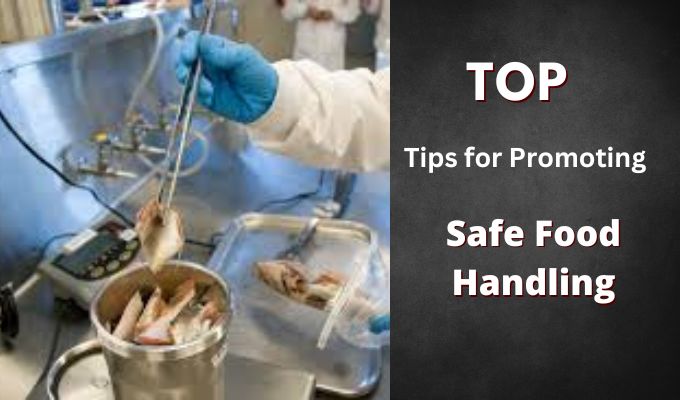In the world of Elevate Performance: Diet for Athletes, requiring optimal fuel to perform at their best. Just as a car needs high-quality gasoline to run smoothly, athletes rely on their diet to fuel their bodies for peak performance. But why is diet so important for athletes? Picture this: imagine trying to run a marathon with a stomach full of fast food or attempting to score a winning goal on a diet of sugary snacks. Your body wouldn’t have the energy or nutrients it needs to excel. That’s why understanding the significance of a proper diet is crucial for athletes aiming for success.

Introduction to Athlete Nutrition:
Athletes are like high-performance machines, constantly pushing their bodies to achieve remarkable feats of strength, speed, and endurance. Just like any machine, they require the right fuel to function optimally. This is where athlete nutrition comes into play. It’s not just about eating to satisfy hunger; it’s about strategically fueling the body to support performance, recovery, and overall health.
Fundamentals of Sports Nutrition:
Sports nutrition revolves around providing the body with the nutrients it needs to perform at its best. This includes carbohydrates for energy, protein for muscle repair and growth, fats for sustained energy and hormone production, vitamins and minerals for various metabolic functions, and hydration to maintain fluid balance and regulate body temperature.
Energy Systems in Sports:
Understanding the body’s energy systems is crucial for athletes to tailor their nutrition accordingly. Whether it’s the immediate energy from ATP-PC system, the short-term energy from anaerobic glycolysis, or the sustained energy from aerobic metabolism, each system requires specific nutrients for optimal function.
The Impact of Diet on Athletic Performance:
Diet plays a profound role in athletic performance. A well-balanced diet can enhance endurance, strength, speed, agility, and overall athletic prowess. Conversely, poor dietary choices can lead to fatigue, decreased performance,

increased risk of injury, and longer recovery times.
Pre-Workout Nutrition Strategies:
Pre-workout nutrition aims to provide the body with the necessary energy and nutrients to optimize performance and delay fatigue during exercise. This typically involves consuming a balanced meal or snack containing carbohydrates, protein, and fluids 1-3 hours before exercise.
During Exercise Nutrition:
During exercise, especially prolonged or intense sessions, proper hydration and fueling are essential to sustain energy levels, maintain hydration status, and prevent fatigue and dehydration. This may involve consuming carbohydrates and electrolytes through sports drinks, gels, or easily digestible snacks.
Post-Workout Nutrition and Recovery:
Post-workout nutrition is crucial for replenishing glycogen stores, repairing damaged muscles, and facilitating recovery. Consuming a combination of carbohydrates and protein within the first 30 minutes to 2 hours after exercise can enhance recovery and promote muscle repair.
Special Dietary Considerations for Athletes:
Athletes may have unique dietary needs based on their sport, training regimen, body composition goals, and any underlying health conditions. Special considerations may include increasing calorie intake for high-volume training, adjusting macronutrient ratios for specific performance goals, or addressing food allergies and intolerances.
Mental Performance and Nutrition:
Nutrition doesn’t just affect the body; it also impacts mental performance, concentration, focus, and mood. Consuming a well-balanced diet rich in nutrients such as omega-3 fatty acids, antioxidants, and B vitamins can support cognitive function and mental clarity, which are vital for athletic success.
Long-Term Health Implications:
Beyond performance, diet plays a critical role in long-term health and well-being. Athletes who prioritize nutrient-dense foods, maintain proper hydration, and adopt healthy eating habits are not only better equipped to excel in their sport but also reduce their risk of chronic diseases and promote longevity.
Assessing Nutritional Status:
Regularly assessing nutritional status through methods like food logs, body composition analysis, blood tests, and consultation with sports dietitians can help athletes identify any deficiencies or areas for improvement in their diet and make necessary adjustments to optimize performance and health.
Common Myths and Misconceptions:
In the realm of athlete nutrition, several myths and misconceptions abound, from the need for excessive protein intake to the belief that supplements can compensate for poor dietary choices. Separating fact from fiction is essential for athletes to make informed decisions about their nutrition.
Conclusion:
In conclusion, diet plays a paramount role in the success of athletes. By understanding the fundamentals of sports nutrition, implementing pre, during, and post-workout nutrition strategies, addressing special dietary considerations, and prioritizing long-term health, athletes can fuel their bodies for peak performance, enhance recovery, and achieve their athletic goals. Remember, what you eat directly impacts how you perform, both on and off the field. So, choose your fuel wisely.

FAQS:
Q1:Why are diets important for athletes?
Diets are crucial for athletes because they directly impact performance, recovery, and overall health. Proper nutrition provides the necessary energy, nutrients, and hydration for athletes to train effectively, optimize their performance, and enhance their endurance and strength.
Q2:Why is diet and exercise important?
Diet and exercise are both important because they complement each other in achieving fitness goals. While exercise helps build strength, endurance, and flexibility, a balanced diet provides the essential nutrients needed for muscle repair, energy production, and overall well-being. Without proper nutrition, athletes may experience fatigue, decreased performance, and increased risk of injury.
Q3:Why can athletes eat so much?
Athletes can eat more than the average person due to their higher energy expenditure during intense training sessions and competitions. Their bodies require more calories to fuel their workouts, support muscle growth, and aid in recovery. However, it’s important for athletes to focus on consuming nutrient-dense foods rather than simply eating large quantities of calories.
Q4:What foods are good for athletic performance?
Foods that are good for athletic performance include lean proteins, complex carbohydrates, healthy fats, fruits, vegetables, and adequate hydration. These foods provide essential nutrients such as protein for muscle repair and growth, carbohydrates for energy, fats for hormone regulation, vitamins and minerals for overall health, and hydration to maintain fluid balance and prevent dehydration. A well-rounded diet consisting of a variety of nutrient-rich foods is key to supporting optimal athletic performance.


